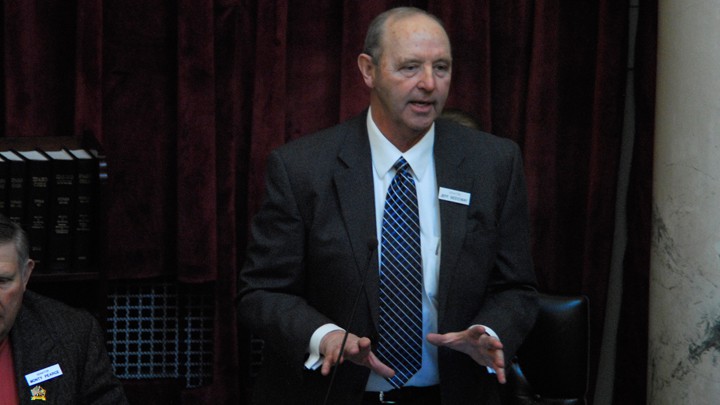


If you’re hoping for some tax relief in the 2015 session of the Legislature, don’t bank on it. Republican Jeff Siddoway, the chairman of the Senate Local Government and Taxation Committee, says his committee will not consider any tax cuts this year.
None.
Zero.
That is, until he believes public schools are properly funded.
Siddoway has told other members of the Legislature that he’s concerned that Idaho isn’t doing enough to support public schools and attract and retain teachers. His ultimatum, he says, applies to his own laudable goal to further rid businesses of the personal property tax. He also told me it applies to my desire to eliminate the tax on groceries, should that proposal have even the slightest impact on state revenues. And he said he has let Gov. Butch Otter know it applies to the governor’s positive-but-not-terribly-ambitious goal to lower marginal income tax rates to 7 percent over the next four years.
Siddoway’s demand is fairly audacious. It carries weight because his committee is the gatekeeper to any tax cut legislation that may come out of the House.
Siddoway, who is from Terreton in eastern Idaho, says the school districts he represents are struggling to retain good teachers. “Out here in the boondocks, we cannot keep teachers. My push is to get that funded to where we can get good teachers and retain good teachers,” Siddoway told me. He said he’s aiming to bring starting teacher pay from about $31,000 a year to $40,000. Moving starting teacher pay would cost taxpayers around $25 million. But that assumes that only the starting pay changes. Naturally, a change to starting teacher pay would pressure lawmakers to increase salaries for more experienced teachers, too, which may increase the salary package’s cost to as much as $60 million.
There are, of course, procedural ways to out-maneuver Siddoway. Lt. Gov. Brad Little, who presides over the Senate, could, for example, assign any House-passed tax cut legislation to another committee. The Senate could also use special procedures to advance tax cut legislation without any committee involvement. It’s highly unusual, and seldom happens, but it is among a small number of options to keep tax cut legislation moving along without Siddoway’s blessing.
Still, lawmakers will arrive in Boise and face a conundrum, especially if they’re hoping to leave town this winter without going on a spending spree. But there are alternatives.
The state could easily apply more money to salaries without breaking the bank if the state were to revisit the way it pays for public employee retirement. The state pension system swallows up 18 percent of payroll. It’s a fixed cost that cannot be avoided. Reforms, like those advanced in Utah and Oklahoma, could provide handsome salary increases that properly compensate teachers and still provide educators with a generous retirement—without additional burden to taxpayers.
Additionally, the state could provide funding flexibility to school boards, so that districts can respond to market forces, demands and opportunities in the way they know best, allowing them to offer compelling compensation packages that reward and retain existing teachers, as well as attract the nation’s very best teachers to Idaho. What makes sense in Boise may not make the most sense in Salmon or Rexburg. Our 20-year-old school funding formula simply does not do our kids, parents or teachers justice, as evidenced by the current discussion.
Idaho does need to attract and retain good teachers if we are to have a competitive, vibrant public education system. But the state also badly needs to lower its taxes, which are higher than all of our neighboring states. The two goals are not mutually exclusive. Both policy discussions deserve full consideration in the next legislative session.


